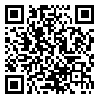Volume 19, Issue 3 (Autumn 2024)
jmed 2024, 19(3): 873-883 |
Back to browse issues page
Download citation:
BibTeX | RIS | EndNote | Medlars | ProCite | Reference Manager | RefWorks
Send citation to:



BibTeX | RIS | EndNote | Medlars | ProCite | Reference Manager | RefWorks
Send citation to:
Sepahi M, Vagharseyyedin S A, Ahmadi Chenari H, Sabeghi H. Kohlberg's Moral Reasoning Levels in Nursing Students and Its Relationship with Professional Identity. jmed 2024; 19 (3) :873-883
URL: http://jmed.ssu.ac.ir/article-1-1514-en.html
URL: http://jmed.ssu.ac.ir/article-1-1514-en.html
Birjand University of Medical Sciences, Birjand, Iran. , hakimeh.sabeghi@gmail.com
Abstract: (1365 Views)
Introduction: In the nursing profession, a suitable level of moral reasoning increases the quality of care for patients and boosts job satisfaction among nurses. Professional identity increases self-confidence, the feeling of belonging to the profession, and establishing interpersonal communication in people. This study was conducted to determine the relationship between Kohlberg's level of ethical reasoning and the professional identity of nursing students.
Method: In this correlation study, 231 undergraduate nursing students of nursing faculties affiliated with Birjand University of Medical Sciences were selected by stratified random sampling based on ratio. Data were collected using a Demographic profile form, Hao et al.'s professional identity questionnaire, and Kohlberg's moral reasoning. Data were analyzed using statistical tests of Pearson correlation, regression, independent t-test, and one-way analysis of variance at a significance level of 0.05.
Result: The average score of moral reasoning and professional identity in nursing students was 47.04 ± 5.21 and 61.98 ± 11.16, respectively. The results showed a positive and significant relationship between moral reasoning and professional identity in nursing students (r = 0.55, P < 0.001).
Conclusion: Based on the results, moral reasoning has a positive and significant relationship with professional identity in nursing students. Therefore, teaching ethical concepts to nursing students, enhances their ethical reasoning. As a result, their professional identity can be improved.
Method: In this correlation study, 231 undergraduate nursing students of nursing faculties affiliated with Birjand University of Medical Sciences were selected by stratified random sampling based on ratio. Data were collected using a Demographic profile form, Hao et al.'s professional identity questionnaire, and Kohlberg's moral reasoning. Data were analyzed using statistical tests of Pearson correlation, regression, independent t-test, and one-way analysis of variance at a significance level of 0.05.
Result: The average score of moral reasoning and professional identity in nursing students was 47.04 ± 5.21 and 61.98 ± 11.16, respectively. The results showed a positive and significant relationship between moral reasoning and professional identity in nursing students (r = 0.55, P < 0.001).
Conclusion: Based on the results, moral reasoning has a positive and significant relationship with professional identity in nursing students. Therefore, teaching ethical concepts to nursing students, enhances their ethical reasoning. As a result, their professional identity can be improved.
Type of Study: Research |
Subject:
Medical Education
Received: 2024/09/22 | Accepted: 2024/12/1 | Published: 2024/12/28
Received: 2024/09/22 | Accepted: 2024/12/1 | Published: 2024/12/28
Send email to the article author
| Rights and permissions | |
 |
This work is licensed under a Creative Commons Attribution-NonCommercial 4.0 International License. |






